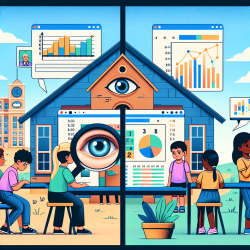Introduction
The COVID-19 pandemic has profoundly impacted education systems worldwide, with significant implications for health equity and learning. The research article "Health Equity, Schooling Hesitancy, and the Social Determinants of Learning" by Levinson, Geller, and Allen (2021) highlights the intricate relationship between health and education, emphasizing the need for data-driven strategies to address schooling hesitancy and promote equitable learning outcomes.
Understanding Schooling Hesitancy
Schooling hesitancy refers to the reluctance of families to send children back to in-person schooling, even when safety measures are in place. The research identifies four primary causes of schooling hesitancy in the U.S.:
- High community transmission rates and politicization of school reopenings.
- Long-term racialized disinvestment in urban districts.
- Parents' rational calculations about their family's vulnerability due to social determinants of health.
- Mistrust between families, educators, and policymakers.
Data-Driven Solutions
To address these challenges, the research recommends several evidence-based strategies:
- Invest in scientifically-based facilities upgrades to improve school safety.
- Increase nursing and counseling staffing to support students' health and well-being.
- Prepare schools to serve as pediatric vaccination sites to increase vaccine accessibility.
- Engage in humble listening to parents and teachers to understand and address their concerns.
Implementing Research Outcomes
Practitioners can improve their skills by implementing these research outcomes. For example, speech-language pathologists working with schools can advocate for and participate in facility upgrades and health staffing increases. They can also play a crucial role in communication efforts, helping to address concerns and build trust with families.
Furthermore, practitioners are encouraged to engage in further research to explore innovative solutions tailored to their specific school communities. By staying informed and involved, practitioners can contribute to creating equitable learning environments that support all students.
Conclusion
The intersection of health and education is critical in addressing schooling hesitancy and promoting equitable learning outcomes. By implementing data-driven strategies and engaging in ongoing research, practitioners can help create safe and supportive educational environments for all children.
To read the original research paper, please follow this link: Health Equity, Schooling Hesitancy, and the Social Determinants of Learning.










